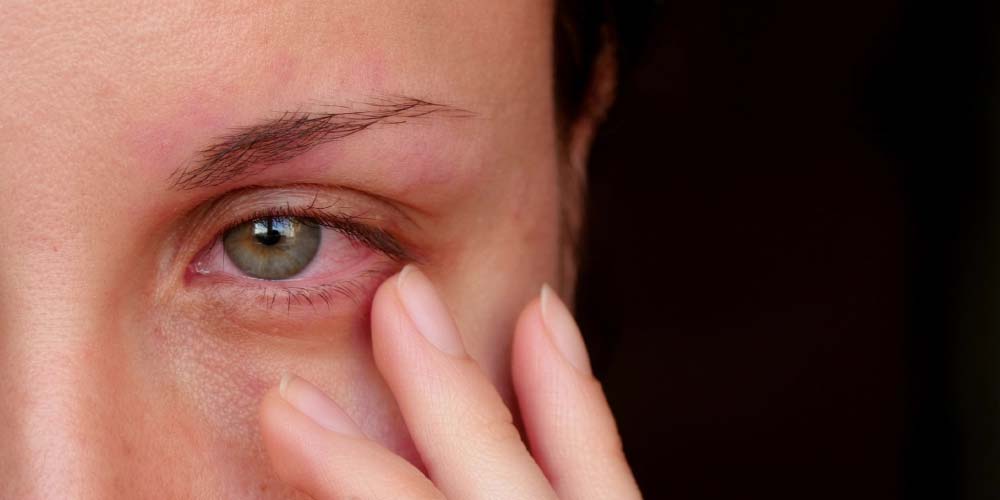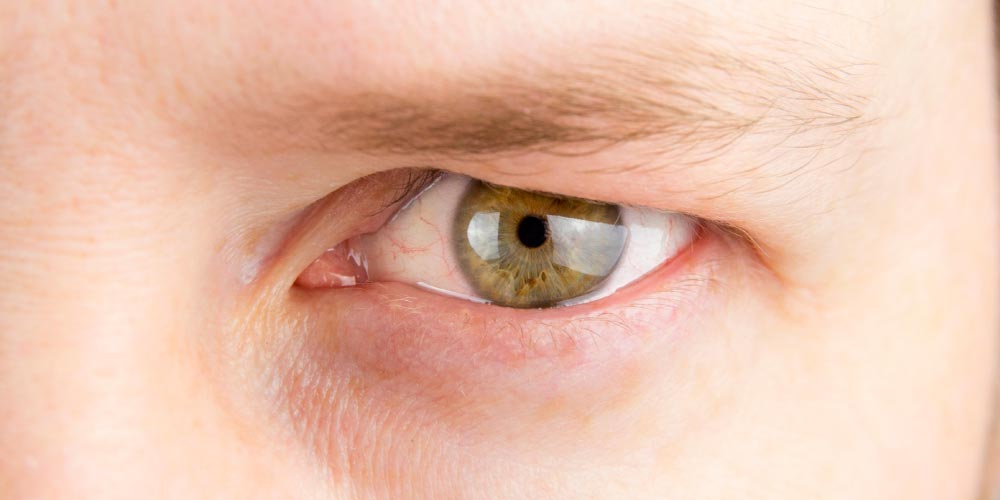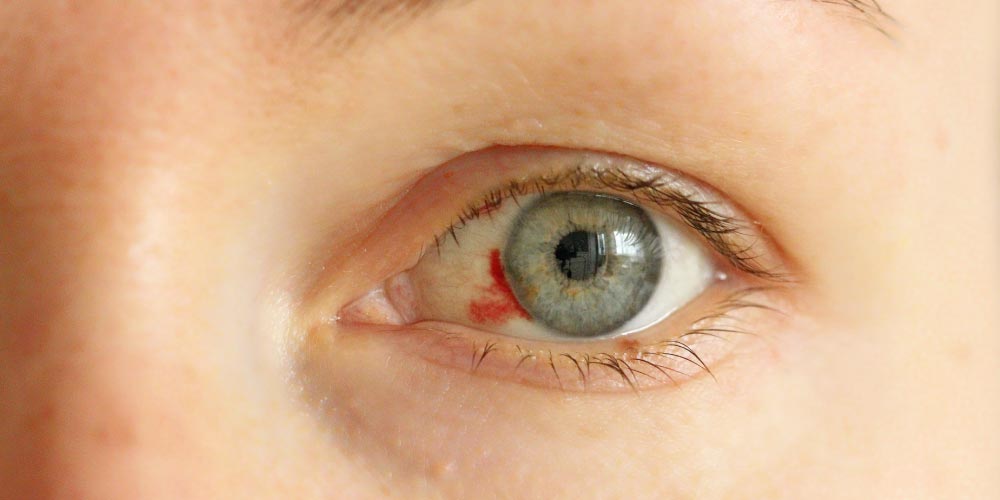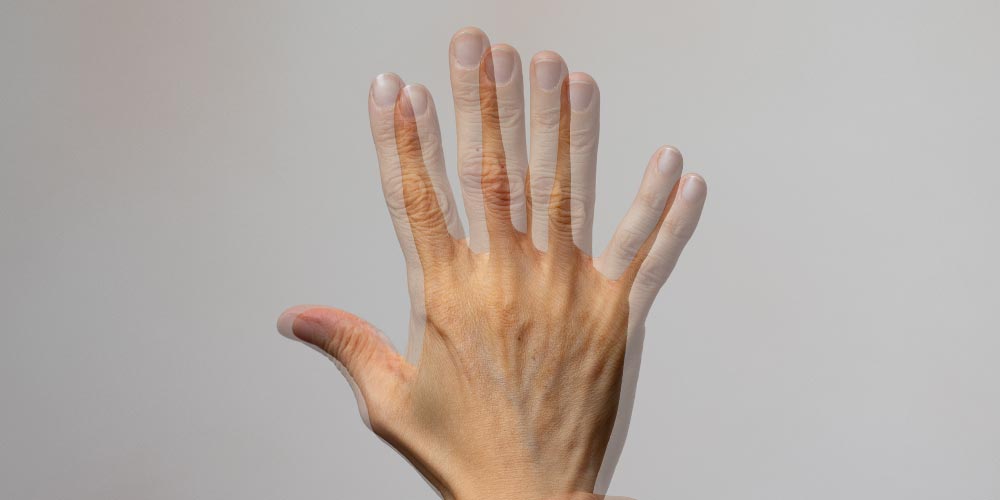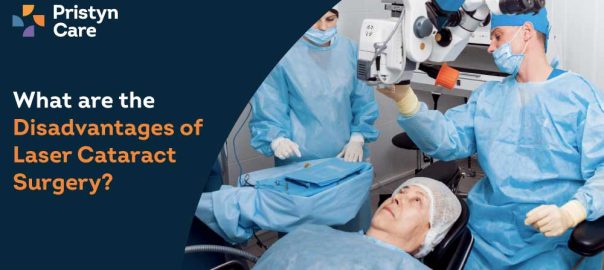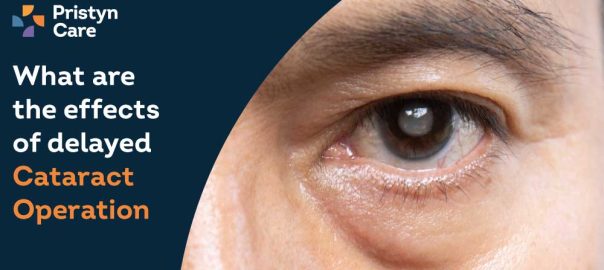![]() Views: 1,096
Views: 1,096
Cataract Surgery- Complications and Risks
Cataract surgery is the procedure of removing the clouded eye lens and replacing it with an intraocular lens. Technological advancements have made it possible to reduce the risks and complications associated with cataract surgery. However, some complications still occur during and after the procedure.
Dedicated Support at Every Step!
Our Doctors are available 24 hours a day, 7 days a week to help you!
Today, we are going to discuss the potential cataract surgery complications and how to cope with them. Understanding the risks and complications better can also help you to look out for the signs and seek help at the right time.
Table of Contents
Potential Cataract Surgery Complications
Though cataract surgery is generally a safe procedure, like any other surgery, some risks are also there. The most common complications of cataract surgery include swelling, pain, infection, and reaction to anesthesia. Other complications that may occur during or after cataract surgery are explained below.
Normal Side Effects of Cataract Surgery
Side effects are postoperative complications that are minor and often resolve shortly after the cataract surgery without additional treatment.
- Dryness & Inflammation

When the tissues heal, it is normal to have dryness and itching in the eye. For dryness and itchiness, the doctor will prescribe eye drops for lubrication. As a result of surgery, white blood cells or proteins often build up in the anterior eye chamber, which can cause inflammation in the eye, blurs vision, and cause light sensitivity.
Both inflammation and dryness are more like temporary side effects of cataract surgery rather than complications. They resolve within 2-3 weeks without intervention. If not, artificial tears will be prescribed for dryness, and steroid drops will be prescribed for inflammation. - Floaters

These are spots in the line of vision that forms when the gel inside the retina gets separated. This is called posterior vitreous detachment. These clumps keep floating inside the eye but don’t cause any pain. It will go away on its own in the next few weeks or months after cataract surgery. - Light Sensitivity
Each eye has a different sensitivity to light. And cataract surgery increases this sensitivity, making it feel like the light is too bright. It causes discomfort for a few days. And as the eye adjusts to the new lens, you will be able to look at bright light normally. The doctor will advise you to wear sunglasses until the sensitivity is gone. If it doesn’t, this indicates that there is another problem that needs to be addressed. - Droopy Eyelid

Eye ptosis is a common side effect of cataract surgery. It is often caused due to the use of a lid speculum that holds the eyelid during the procedure. Droopiness can also occur because of anesthesia. Usually, this is temporary, and the eyelid gets back to normal. If not, you can consider getting eyelid surgery or blepharoplasty to improve your field of vision.
Most Common Cataract Complications
The common complications of cataract surgery can usually be addressed properly through medications or other surgical treatments. This ensures that you don’t experience vision loss due to post-operative cataract complications.
- Wound Leak

All eye surgeries carry the risk of blood vessel rupture in the retinal opening. This causes fluid accumulation in the eye, which may leak out through the incision. If not treated on time, this can also lead to infection. - Infection
Endophthalmitis is an infection that patients may experience after cataract surgery. As the internal organs are exposed to external contaminants during the procedure, there is a 0.5% risk of infection in the eye. If you have redness, swelling, or milky discharge from the eye, see a doctor immediately to start antibiotic treatment. If the infection spreads to the internal structures, you may require surgery for the removal of the damaged tissues. - Posterior Capsular Opacification (PCO)
Among all the potential side effects, posterior capsular cataract surgery complication is the most common. The opacification of the lens can begin at any point after the surgery. It happens when the membrane of the lens capsule becomes hazy or wrinkled due to excess cell growth. This makes the vision cloudy.
To address this complication, the doctor will recommend a YAG laser capsulotomy to make an opening in the cloudy capsule. It doesn’t require an incision and takes only about 5 minutes.
Rare Cataract Surgery Complications
These complications only arise in fewer cases of cataract surgeries, but they are often severe and indicate an underlying problem.
- Double Vision

Also known as diplopia, double vision occurs only in a few cases after cataract surgery. This happens in some patients when the brain adjusts to a new, clearer lens. In others, a dislocated lens can also lead to this complication. It is addressed after determining the exact cause. Double vision after cataract surgery is mostly treated with eye exercises, special eyeglasses, medications, or surgery. - Bleeding in the Eye
People who have diabetes, high blood pressure, or similar conditions have a higher risk of suprachoroidal hemorrhage after the surgery. It arises when blood accumulates or builds up between the thin layers of the eye. It is rare, but if it happens, the patient will require immediate care to prevent vision loss. - Swelling of the Macula or Macular Edema
The macula is the central part of the retina where sharp and clear images form. In some patients, fluid can start building up in the macula leading to swelling or edema. It occurs more commonly than retinal detachment or infection. Fortunately, macular edema can be treated with medications and diet modifications. However, once the condition occurs, it needs to be closely monitored by a doctor. - Retinal Tears or Detachment
One of the delayed post-cataract surgery complications is the formation of retinal tears. This usually happens in people who have highly myopic eyes or have a history of retinopathy. Over time, the retinal tears can cause complete detachment of the retina, which will require further intervention. - Lens Dislocation
In rare instances, postoperative complications of cataract surgery can be dislocation of the IOL (intraocular lens). This can happen months or years after the surgery if the lens doesn’t have adequate capsular support. To manage this complication, the surgeon has to reposition the lens with or without using scleral fixation sutures. In some cases, the posterior IOL may be replaced by an anterior IOL. - Ocular Hypertension or Increased Pressure
Another common complication of cataract surgery is increased pressure in the eye. This often happens immediately after the surgery when the aqueous humor collects in the eye and causes pressure to build up. Generally, the pressure return to normal within a few hours after the treatment.
If it doesn’t resolve, it can further cause complications such as corneal swelling, optic nerve damage, vein damage, and pain. Other than the above-mentioned postoperative cataract complications, some patients may also experience problems due to iris prolapse, retained lens fragments, or toxic anterior segment syndrome (TASS).
Also Read- What tests are done before Cataract Surgery?
No Cost EMI, Hassle-free Insurance Approval
MS, DNB, FICO, MRCS, Fellow Paediatric Opth and StrabismusMobile
FREEConsultation Fee
Get Safe & Advanced Cataract Treatment at Pristyn Care
A number of things can go wrong during or immediately after cataract surgery. It is the surgeon’s responsibility to identify the potential risks and mitigate them to prevent complications. Pristyn Care has well-trained cataract doctors with 10+ years of experience in performing all types of cataract surgeries. Our eye specialists have performed more than 5000 cataract surgeries with a success rate above 95% and less than 1% complication rate.
You can rely on our experts to get safe and minimally invasive treatment for cataracts. They will explain all the surgery risks and also provide instructions to prevent post-op complications. To learn all about cataract surgery and its risk and complications, book your free consultation today.




